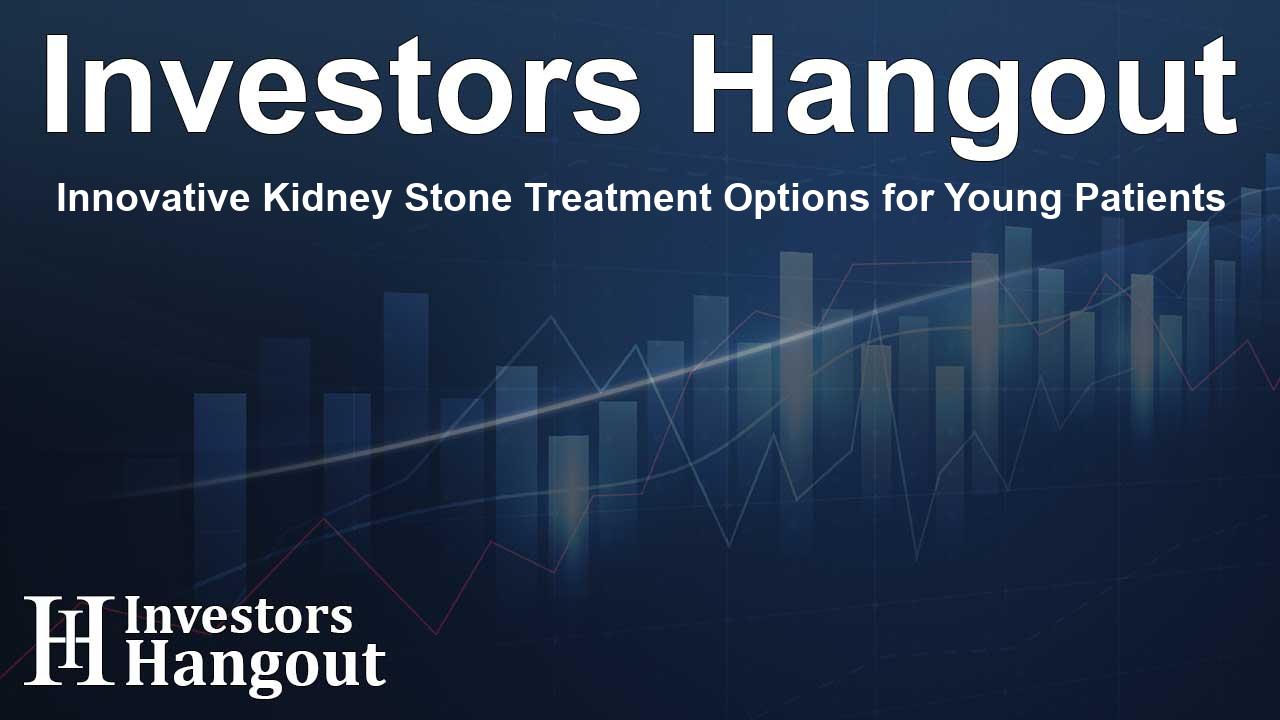Innovative Kidney Stone Treatment Options for Young Patients

Groundbreaking Study on Pediatric Kidney Stone Treatments
The recent research led by the Children's Hospital of Philadelphia (CHOP) represents a crucial advancement in pediatric healthcare, particularly in the treatment of kidney stones among children and adolescents. This significant study titled the Pediatric KIDney Stone (PKIDS) trial has unveiled important findings that contribute to more precise treatment choices for families facing this challenging condition.
Understanding Kidney Stones in Children
Kidney stones are notably hard formations that occur when certain minerals in urine crystallize and stick together. Once considered an ailment predominantly affecting adults, the occurrence of kidney stones in children has notably increased over the years, alarming health professionals and caregivers alike. This increase is concerning, as it has doubled the likelihood of children developing these painful conditions. In light of this trend, CHOP established the PKIDS Care Improvement Network in 2019, now comprising 31 sites across several regions.
Comparison of Treatment Techniques
In the study, which is the largest comparative effectiveness trial of its kind, various surgical methods were employed to treat kidney stones, including ureteroscopy, shockwave lithotripsy, and percutaneous nephrolithotomy (PCNL). These procedures vary significantly in terms of invasiveness and recovery time. Ureteroscopy, while widely used, had uncertain effectiveness compared to alternative methods. The study aimed to clarify these uncertainties and provide guidance for pediatric urologists as well as families deciding on surgery options.
Results from the PKIDS Trial
One of the core studies involved over 1,140 patients ranging from 8 to 21 years old, carefully examining the differences between ureteroscopy and shockwave lithotripsy. The results indicated that patients undergoing shockwave lithotripsy experienced less postoperative pain and fewer urinary symptoms, showcasing its potential as a less traumatic option for young patients. However, both techniques proved to be effective in stone removal without significant differences in ultimate stone-free rates.
Effects of Larger Stones on Treatment Choices
Another focal point of the research assessed the effectiveness of PCNL compared to ureteroscopy for larger kidney stones. The findings demonstrated that PCNL was not only more effective at removing larger stones but also led to a more favorable recovery experience. These insights are instrumental for caregivers and can help streamline treatment protocols for pediatric patients suffering from kidney stones.
Quality of Life Considerations
The authors of the study emphasized a key aspect: beyond surgery effectiveness, the quality of life for children and their families greatly influences treatment decisions. Factors such as time lost from school and work for caregivers are critical when evaluating surgical options. The overarching goal remains to improve outcomes and foster quicker recoveries, ultimately optimizing the experiences of those affected.
A Forward Path in Pediatric Urology
As the leaders of the PKIDS trial continue to analyze data and draw insights, they remain committed to refining clinical practices for pediatric kidney stone treatments. Dr. Gregory E. Tasian, who directs the PKIDS network, passionately advocates for the necessity of incorporating patient-centered outcomes into clinical practice. His hope is that such advancements will not only inform future clinical trials but also swiftly translate into practice improvements for families.
About Children's Hospital of Philadelphia
Children's Hospital of Philadelphia, founded in 1855, proudly stands as a non-profit organization that has set the foundation for exemplary pediatric care. Renowned for its extensive research initiatives, CHOP continues to make strides in treating children. The institution boasts a robust history of advanced pediatric care through its comprehensive network, which includes numerous primary and specialty care practices spread across several states. As a recognized leader in advocating for children's healthcare, CHOP remains devoted to enhancing the life quality of its young patients and their families.
Frequently Asked Questions
What is the primary focus of the PKIDS trial?
The PKIDS trial is aimed at comparing the effectiveness of different surgical interventions for treating kidney stones in children and adolescents.
What surgical methods were evaluated in the study?
The study evaluated ureteroscopy, shockwave lithotripsy, and percutaneous nephrolithotomy (PCNL) as treatment options for pediatric patients with kidney stones.
How do the treatment options compare in terms of recovery?
Shockwave lithotripsy was found to be associated with less pain and quicker recovery time compared to ureteroscopy.
What are the implications of the study's findings?
The findings aim to empower families and health care providers to make informed decisions regarding the treatment of kidney stones in young patients.
Who conducted the studies associated with the PKIDS trial?
The studies were conducted by researchers from the Children's Hospital of Philadelphia and collaborating institutions.
About The Author
Contact Dylan Bailey privately here. Or send an email with ATTN: Dylan Bailey as the subject to contact@investorshangout.com.
About Investors Hangout
Investors Hangout is a leading online stock forum for financial discussion and learning, offering a wide range of free tools and resources. It draws in traders of all levels, who exchange market knowledge, investigate trading tactics, and keep an eye on industry developments in real time. Featuring financial articles, stock message boards, quotes, charts, company profiles, and live news updates. Through cooperative learning and a wealth of informational resources, it helps users from novices creating their first portfolios to experts honing their techniques. Join Investors Hangout today: https://investorshangout.com/
The content of this article is based on factual, publicly available information and does not represent legal, financial, or investment advice. Investors Hangout does not offer financial advice, and the author is not a licensed financial advisor. Consult a qualified advisor before making any financial or investment decisions based on this article. This article should not be considered advice to purchase, sell, or hold any securities or other investments. If any of the material provided here is inaccurate, please contact us for corrections.
